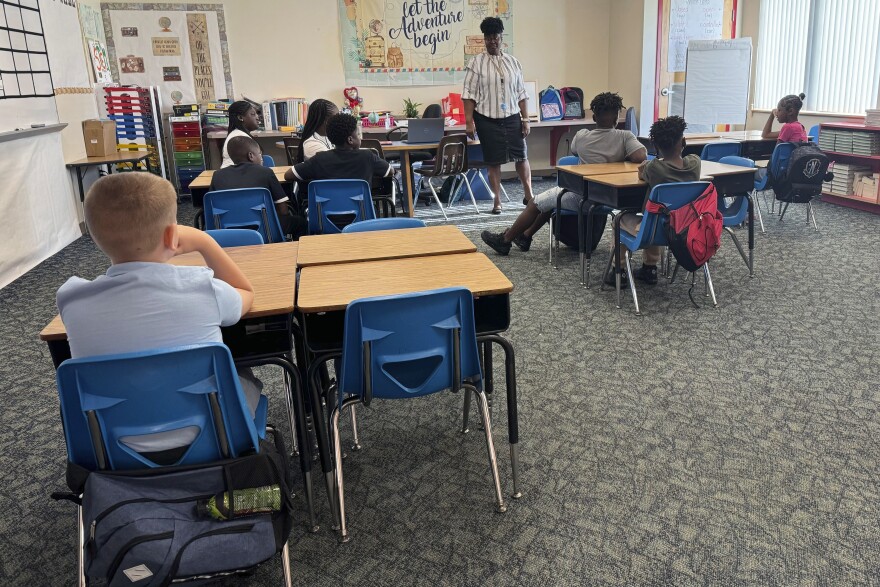Final passage of a leaner state budget totaling $115.1 billion, marking the end of this year’s lawmaking season by the Republican-majority Florida Legislature, was blasted by the Florida Education Association.
“We are disappointed that the final budget again falls short of meeting the full needs of Florida’s students and educators,” said Florida Education Association President Andrew Spar, in a statement. “Lawmakers had meaningful opportunities to strengthen public education, but many of those opportunities were missed.”
The FEA specifically noted the budget failed to stem a teacher and staff shortage or the state’s low standing (50th in the nation) for average teacher pay. And failed to make a significant investment in mental health support and services for students.
The state’s largest teachers union was also critical of the Legislature’s expansion of charter schools known as “Schools of Hope” and allowing them to “co-locate with another school in a public school facility.
READ MORE: More Florida kids attend a school of choice rather than a neighborhood public school
Charter schools are public schools often run by private operators. Lawmakers in 2017 created the “Schools of Hope” program to serve children in areas with “persistently low-performing” traditional public schools.
State lawmakers are setting aside $4 billion for scholarships for private and religious education, two years after the Legislature expanded the state's voucher program to make all K-12 students eligible, regardless of family income. Since then, the state's indirect spending on private school tuition and homeschooling costs has risen dramatically, which critics warn is burning through the state's budget.
Rep. Anna Eskamani, D-Orlando, said lawmakers were changing the definition of persistently low-performing public schools “to capture more schools for the sake of privatization.”
“Why don’t we fund traditional public schools instead of creating these schemes that pull funding away from traditional public schools?” said Rep. Kelly Skidmore, D-Boca Raton.
The News Service of Florida and The Associated Press contributed to this story.






